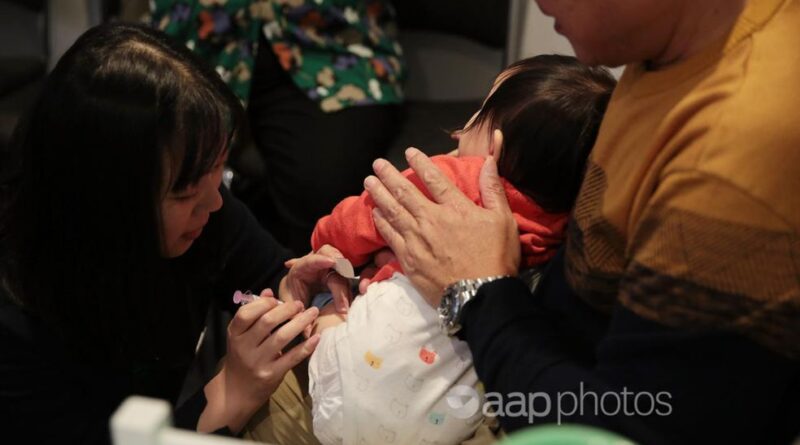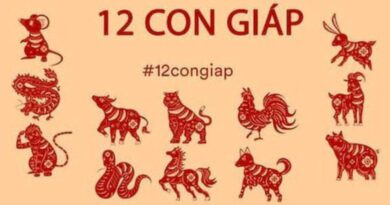No, hep B vaccine wasn’t created for ‘hookers and drug users’
Soofia Tariq
November 1, 2024
WHAT WAS CLAIMED
The hep B vaccine was given to babies as its intended recipients (drug users and sex workers) refused to have it.
OUR VERDICT
False. The vaccine was not specifically created for sex workers and drug users and babies are given it as they are susceptible to the infection.
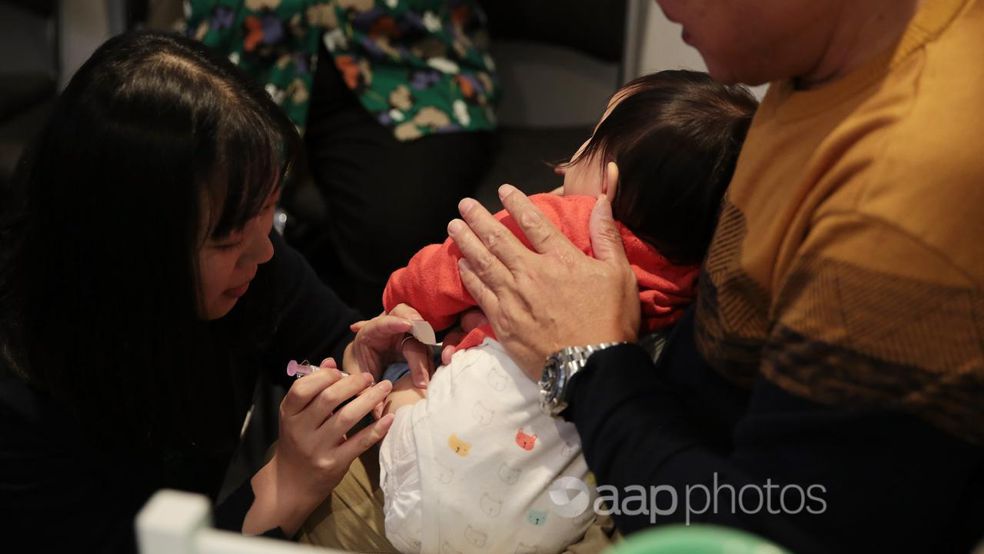
AAP FACTCHECK – A post being shared on social media falsely claims the hepatitis B vaccine was created for “hookers and drug users” and only given to babies to create a new market.
The claim, which is being shared on Facebook and Instagram, misrepresents the history of hepatitis B vaccination, which it says was given to babies because sex workers and drug users refused to take it.
“Hep B vaccine was created for hookers & drug users, but when none of them would show up for their shots, companies that invested hundreds of millions in development were pissed and needed SOMEONE to give their #vaccine to. So we handed them our babies – all of them,” posts read.
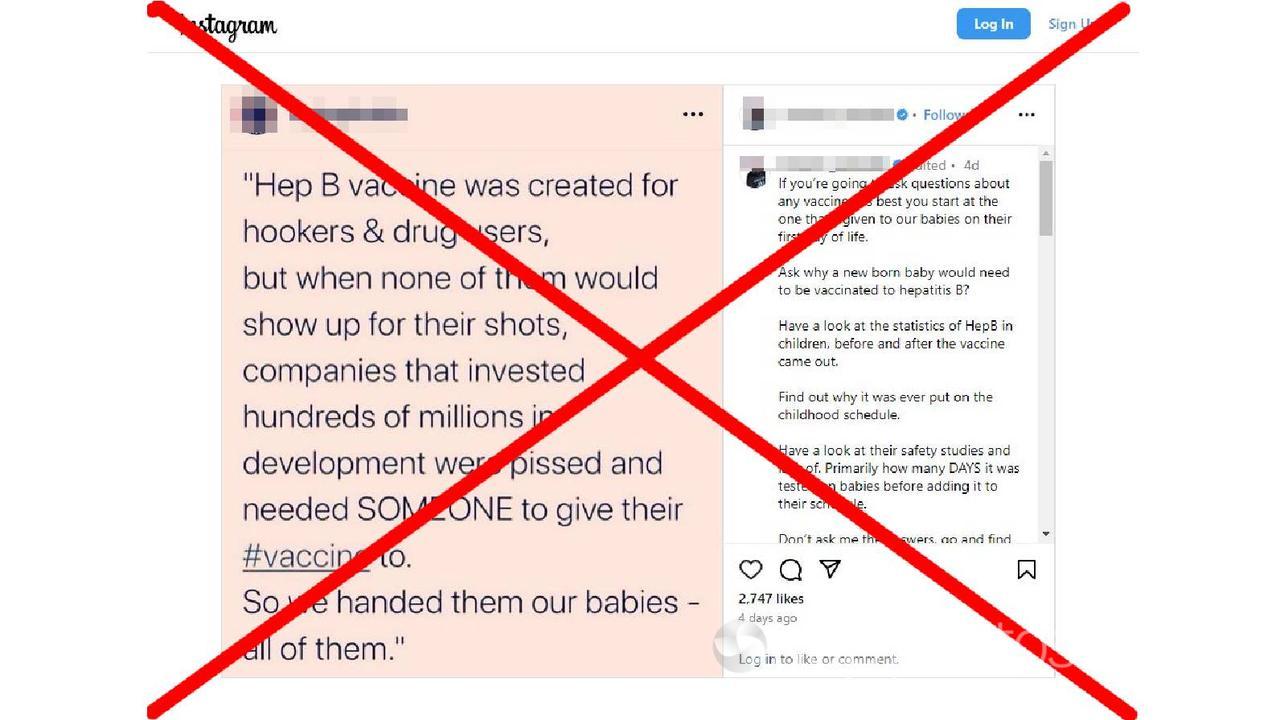
However, babies are given the vaccine because they can get hepatitis before or during birth from their mother. Vaccinating children at birth (which can also offer control after exposure) alongside treatment helps break the cycle of transmission.
Hepatitis B is a blood-borne virus that affects more than 200,000 people in Australia. Without regular care and treatment it can lead to liver disease and liver cancer.
The vaccine was developed to control and prevent acute and chronic hepatitis B and was offered to some of the most susceptible adults before being put on the childhood vaccination schedule.
Experts told AAP FactCheck the claim that the vaccine was only given to babies because sex workers and drug users didn’t want to have their shots is not true.
Mark Douglas, Professor of Infectious Diseases and Hepatic Medicine at the University of Sydney, said the vaccine was developed to protect people at risk and prevent the development of liver cirrhosis, liver failure and liver cancer.
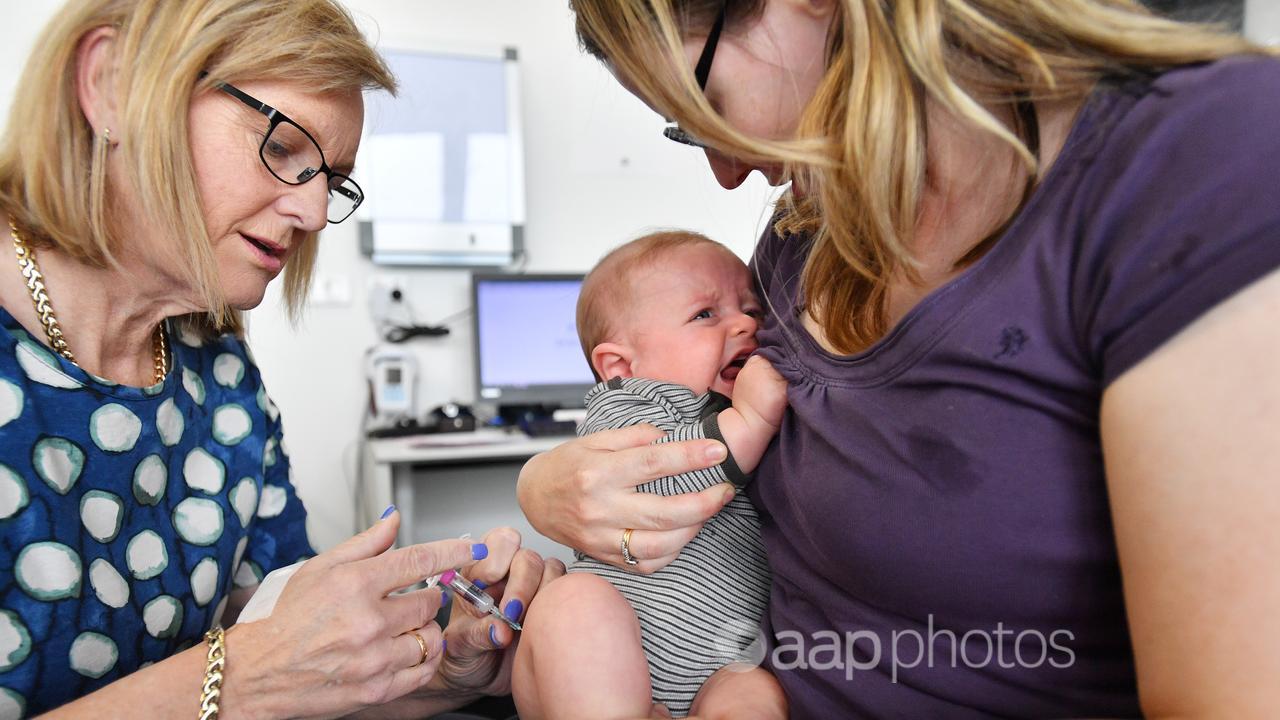
“Preventing neonatal infection is the best way to break the transmission cycle and prevent chronic hepatitis B worldwide,” Professor Douglas said.
“The first generation HBV vaccine was plasma-derived and was licensed in the USA in 1981. Early trials included testing in a range of at-risk people including gay men and haemodialysis patients. In 1982, the vaccine was recommended for a range of people including infants and children.”
In Australia, the hepatitis B vaccine was approved for use on adults in 1982 and newborns in 1985 according to the National Centre for Immunisation Research and Surveillance.
In 1986, the vaccine was first recommended for “at-risk adults” including Aboriginal and Torres Strait Islanders, immigrants and refugees from countries with high levels of infection, healthcare workers, injecting drug users, sexual contacts of hepatitis B carriers, prison inmates and wardens.
Vaccination was also recommended for babies who were born to hepatitis B-positive mothers in 1986. Funding was provided to vaccinate all infants against hepatitis B as part of a childhood vaccination schedule in May 2000.

Hepatologist and liver research scientist Jacob George told AAP FactCheck that the hepatitis B vaccine was never intended to be only for sex workers and drug users.
It is given to babies because the vast majority of patients with hepatitis B acquire it at the time of birth or in early childhood, Professor George said.
“Since the vaccine prevents infection (lifelong), it is now part of childhood vaccination programs in all developed and most developing nations.”
CEO of Hepatitis Australia Lucy Clynes said since May 1, 2000, all children born in Australia should receive the hepatitis B vaccine just after birth.
“The most common time people get chronic hepatitis B is early in life. Infants under one year old who are exposed to the virus have more than 90 per cent chance of getting chronic hepatitis B,” she said.
“This is why it’s so important that babies get vaccinated for hepatitis B.”
Ms Clynes said babies can become infected before or during birth if their mother has hepatitis B and can pass it on for generations. Vaccination offers a way to help break the cycle. (AAP)
